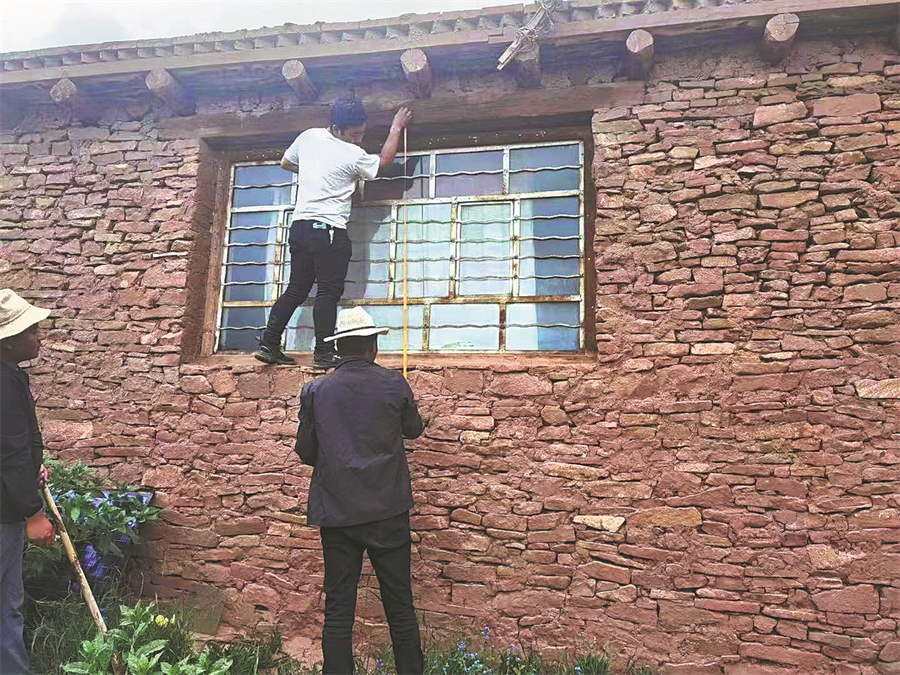Qinghai takes huge strides toward green future

Volunteers in Nangqian county help herdsmen install guardrails to keep bears at bay. [Photo provided to China Daily]
Dondrub Chophel said the development of national parks and nature reserves has effectively put an end to poaching and illegal mining. A vital factor behind Qinghai's success in biological protection lies in the province's wide-ranging drive to mobilize various sectors of society, he said.
The Snowland Great Rivers Environmental Protection Association has encouraged more local herdsmen to take part in such protection efforts over the past 20 years, with over 1,000 volunteers now working to safeguard wildlife in Three-River-Source National Park.
The official emphasis on ecological protection has allowed NGOs such as the association to thrive, while the role of grassroots volunteers has also been emphasized by local authorities. "The government has started to purchase services from NGOs and there is increasingly stronger official recognition of the role played by NGOs in ecological conservation," Dondrub Chophel said.
Sonam Chophel, deputy principal of Changjiangyuan Minzu School, an elementary school in Golmud, said environmental protection education has been a centerpiece of the curriculum. The school has run programs to encourage children to conduct garbage sorting, recycle plastic bottles and use waste to create artworks.
"The children's education has also spurred parents to enhance their environmental awareness," Sonam Chophel said.
He added that the Tibetan ethnic group has always respected nature, and herdsmen have increasingly realized the urgent need for ecological conservation, as overgrazing in the past resulted in grassland deterioration.
Encouraging herdsmen from regions with fragile ecology and harsh natural conditions to resettle with the help of official subsidies and employment programs is another crucial measure to boost grassland and wetlands protection.
Sonam Dondrub, Party chief of Tanggulashan township, Golmud, said improved ecological conditions in the region have led to rising living standards and life expectancy.
He cited the example of Changjiangyuan village, a resettlement area for nomads relocated from the source of the Yangtze River, which lies at an altitude of about 4,700 meters. The nomads have been moved to the suburbs of Golmud, which are at a much lower altitude.
"Previously, most of the children were taught in tents, but now they have lessons in gleaming classrooms," he said. The resettlement of nomads has also led to improved access to healthcare, electricity and tap water, while the average life expectancy of the villagers has risen from 58 years to 71, he added.
"Many nomads could barely shower once or twice for a whole year. Now, their living conditions are even better than those living in urban areas," Sonam Dondrub said.
























